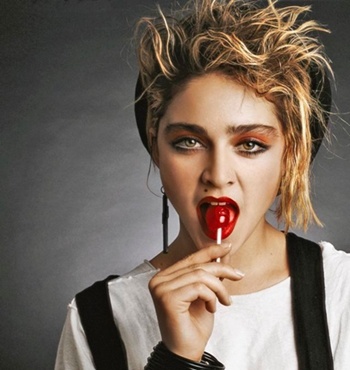George Orwell Biography, Wife, Children, Family, Essays,
Books, Poem, Death, Quotes, Facts & More
Who is George Orwell?
George Orwell (1903-1950) was an English writer,
journalist, and social critic who is widely regarded as one of the most
important literary figures of the 20th century. Eric Arthur Blair, known by his
pen name George Orwell, was an English novelist, essayist, journalist and
critic. He was born Eric Arthur Blair in Motihari, India, and grew up in
England.
Orwell's works often deal with social and
political themes, including poverty, class, imperialism, and totalitarianism.
He is best known for his novels "Animal Farm" and "Nineteen
Eighty-Four," both of which are considered classics of dystopian
literature.
Orwell was also an outspoken critic of
totalitarianism and a champion of democratic socialism. He fought in the
Spanish Civil War and wrote extensively about his experiences, including the
book "Homage to Catalonia."
Today, Orwell's works continue to be widely read
and studied, and his contributions to literature and political commentary are
celebrated around the world.
George Orwell Education
George Orwell's formal education was largely
traditional for his time. He attended several private schools in England as a
child, including St. Cyprian's School in Eastbourne, which he later satirized
in his novel "Such, Such Were the Joys."
In 1922, Orwell won a scholarship to study at
Eton College, one of England's most prestigious private schools. After
completing his studies at Eton, he decided against attending university and
instead joined the Indian Imperial Police in Burma (now Myanmar).
Orwell's experiences in Burma strongly
influenced his writing and his political views. After returning to England in
1927, he began to write and publish essays and novels that reflected his
growing concern for social justice and his opposition to imperialism.
Despite his lack of a formal university
education, Orwell was a lifelong learner and had a wide-ranging curiosity about
the world. His works are often marked by his broad knowledge of history,
politics, and culture.
George Orwell Family
George Orwell was born Eric Arthur Blair on June
25, 1903, in Motihari, India, to a British colonial family. His father, Richard
Walmesley Blair, worked as a civil servant in the Indian opium department, and
his mother, Ida Mabel Blair, was a homemaker.
Orwell had two sisters, Marjorie and Avril, and
a younger brother, Richard. When Orwell was one year old, his family moved to
England, where he spent most of his childhood.
Orwell married Eileen O'Shaughnessy in 1936, and
the couple adopted a son together, named Richard Horatio Blair. Eileen passed
away in 1945, and Orwell remarried to Sonia Brownell in 1949, shortly before
his death.
Orwell's relationships with his family and loved
ones were often complicated and fraught with tension, and these experiences
strongly influenced his writing. His works are often marked by a sense of
alienation and a concern for the individual in the face of oppressive social
forces.
George Orwell political views
George Orwell's political views were complex and
evolving throughout his life, but he is best known for his opposition to
totalitarianism, imperialism, and authoritarianism of all kinds.
Orwell was a democratic socialist and believed
in a society where wealth and power were more equitably distributed. He was
critical of both capitalism and communism, and saw the rise of totalitarianism
in the 20th century as a threat to human freedom and dignity.
Orwell fought in the Spanish Civil War as a
member of the Marxist POUM militia, but he became disillusioned with the Soviet
Union and the Spanish Communist Party's brutal suppression of other leftist
groups during the conflict. This experience led him to write his famous book
"Homage to Catalonia," which is a personal account of his time
fighting in Spain and his growing disillusionment with the Communist Party.
In his most famous works, "Animal
Farm" and "Nineteen Eighty-Four," Orwell explored the dangers of
authoritarianism and the ways in which political leaders can manipulate
language and propaganda to control and subjugate their citizens. His writings
have been influential in shaping the modern discourse around politics, power,
and freedom.
George Orwell Wife
George Orwell was married twice during his life.
His first marriage was to Eileen O'Shaughnessy,
a writer and translator, in 1936. They had met in London while O'Shaughnessy
was working as a secretary at the literary agency that represented Orwell. The
couple adopted a son together, named Richard Horatio Blair.
Orwell and O'Shaughnessy remained together until
her death in 1945, which was a devastating loss for Orwell. He later wrote
about their marriage and his grief in his book "A Clergyman's
Daughter."
After O'Shaughnessy's death, Orwell became
involved with several other women, including Sonia Brownell, a young assistant
at his publisher's office. Orwell and Brownell were married on October 13,
1949, just a few months before Orwell's death from tuberculosis. Their marriage
was brief but intense, and Brownell remained devoted to Orwell and his legacy
after his death.
Biography
Birth Name: Eric Arthur Blair
Date of birth: 25 June 1903
Birth Place: Motihari, Bengal Presidency, British India
Full name: Eric Arthur Blair
Pen name: George Orwell
Education: Eton College
Death Date: January 21, 1950
Death Place: University College Hospital, London, England
Resting place: All Saints' Church, Sutton Courtenay,
Oxfordshire, England
Parents: Ida Mabel Limouzin
Richard Walmsley Blair
Spouse: Eileen O'Shaughnessy (m. 1936; died 1945)
Sonia
Brownell (m. 1949)
Writing Subjects: Anti-fascism, anti-Stalinism, anarchism,
democratic socialism, literary criticism, journalism, and polemic
Genre: Dystopia, satire, roman à clef
Books
Novels
1934 – Burmese Days
1935 – A Clergyman's Daughter
1936 – Keep the Aspidistra Flying
1939 – Coming Up for Air
1945 – Animal Farm
1949 – Nineteen Eighty-Four
Non
fiction
1933 – Down and Out in Paris and London
1937 – The Road to Wigan Pier
1938 – Homage to Catalonia
Essays
By ORWELL
Nonsense Poetry (Tribune, 1945)
Poetry and the microphone (New Saxon Pamphlet, 1945)
W. B. Yeats (Horizon, 1943)
Inside the Whale (1932)
Rudyard Kipling (Horizon, 1942)
Poems
By ORWELL
A dressed man and a naked man (1933)
A Happy Vicar I Might Have Been (1935)
Dear Friend, allow me for a little while (c. 1927)
Kitchener
My Love and I
Romance (1925)
Sometimes in the middle autumn days (The Adelphi, 1933)
Suggested by a Tooth Paste Advertisement (c. 1918-1919)
Summer-like for an instant (1933)
The Lesser Evil (1922-27)
The Pagan (1918)
The Photographer (1920)
When the Franks Have Lost Their Sway (c. 1927)
Related Searches
george orwell books, george orwell 1984, george orwell quotes, george
orwell real name, george orwell essays, george orwell biography, george orwell
movies, george orwell death, george orwell education, george orwell wife, george
orwell children, george orwell novels, george orwell real name, george orwell
political views, george orwell death, george orwell 1984.
Full
Biography – Charles Dickens
Full
Biography – James Caan
Full
Biography – Rudolph Blaze Ingram
Full
Biography – Ed Asner
Full
Biography – Lionel Messi
Full
Biography – Louis Tomlinson
Full
Biography – Ronaldinho













0 Comments